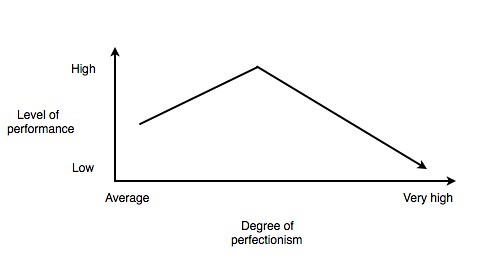KYLady asked a good question that anticipated the next part of this post I was going to do.
Perfectionism is most often found in conditions like depression, OC and eating disorders.
Perfectionism can have both positive and negative outcomes and has been shown to be associated with adjustment, academic achievement and self-efficacy.
Perfectionism can be
Self oriented perfectionism
Other oriented perfectionism
Socially prescribed perfectionism
Self oriented perfectionism endeavors to avoid self criticism (I’m not OK)
Socially prescribed perfectionism endeavors to avoid the criticism of others (I’m not OK)
Other oriented perfectionism involves having unrealistic standards for others (You’re not OK)
The six principle components of perfectionism are
Personal standards
Organization
Concern over mistakes
Doubts about actions
Parental expectations
Parental criticism
Most have two or three of these areas which they feel driven to be perfect in. Interestingly enough the Be Perfect driver person will often have a particular place in their life where it is chaos, disorganized and very ‘imperfect’ such as a room, a cupboard, their car, their paperwork or the like.
Perfectionism and performance
As mentioned before perfectionism can have positive consequences in that it can result in an increase in performance at work or at school. However this needs to be considered in more detail as perfectionism can also result in a reduction in the level of performance.
The graph shows the average person will have a satisfactory level of performance. Those who are subject to the Be perfect driver will initially have an increase in performance as the degree of perfectionism increases. The job at hand gets done better the more ‘perfectly’ it is done. The more perfectly done the more energy has to be expended on the job compared to the person who does the job at an average level.
As the degree of perfectionism increases it reaches a critical point where the level of performance starts to decrease. This can be seen to occur in one of two ways.
1. If one is writing an assignment at school on the different perspectives about feminism in the currant millennium the average person would write it and that would be that. The Be Perfect student would write it but consider more people’s perspectives and consider each perspective from many more perspectives and different people’s perspectives on each of those perspectives. As you can see a point is reached where the need to be perfect makes the assignment worse because each and every variable are considered. Hence the level of performance decreases than if it had been done in an average way.
2. The more perfectly a job is done the more energy is required. The student given the assignment knows how he operates in doing such tasks. Most importantly his Child ego state knows the level of perfection required by his Parent ego state and he knows that reaching that level of performance is exhausting and very tiring. As a result the Child ego state starts to avoid doing the task and hence we end up with one cause of procrastination. He delays it for as long as possible because he knows how much he will suffer whilst doing it. As a result the level of performance goes down because jobs don’t get done or only get done at the very last moment.
However this situation can go even further. In some cases the degree of perfectionism can be extreme and when that happens one can end up with a thought disorder and other psychotic behaviour. A common one is the thought disorder known as overdetailing. When the person talks they go into so much detail that it becomes incomprehensible. In their thinking they constantly consider many different perspectives, factors and permutations such that eventually the thinking becomes disordered to the extent that the person is not capable of looking after them self or performing basic day to day tasks. At this point the person can only achieve a very low level of performance due to the degree of perfectionism.
Graffiti






0 comments:
Post a Comment